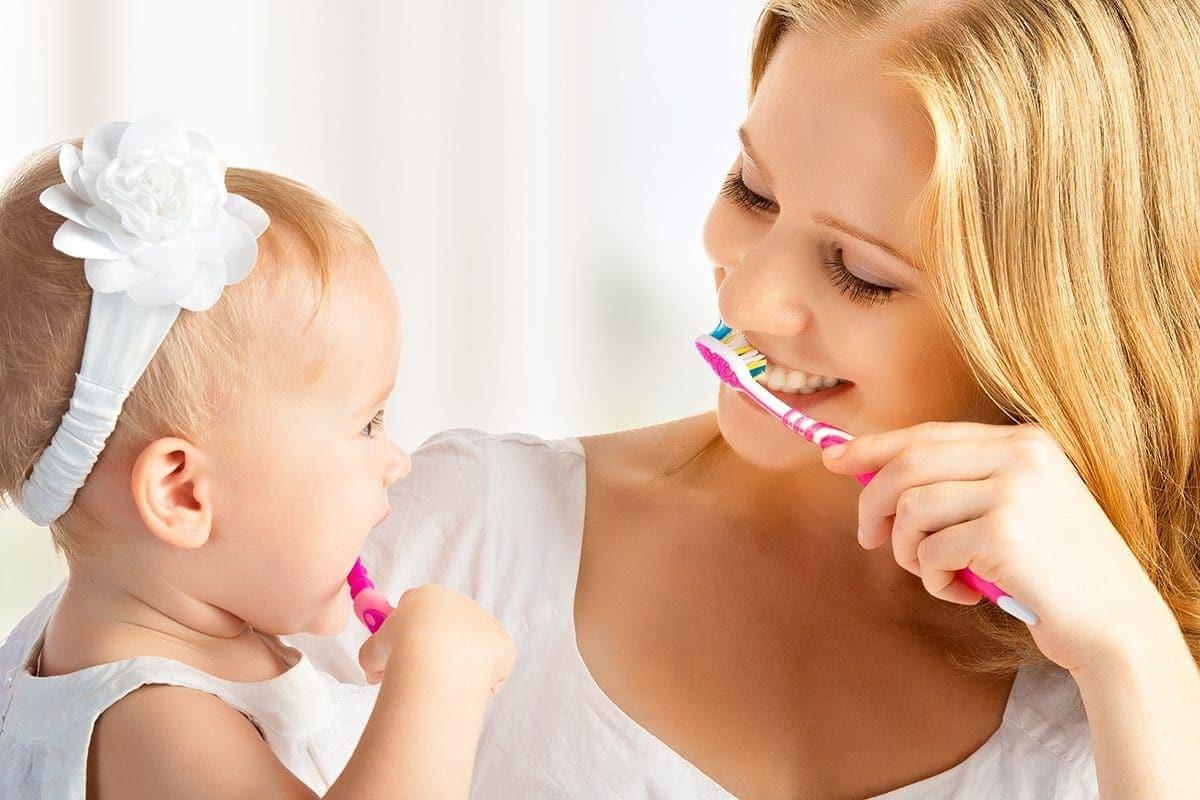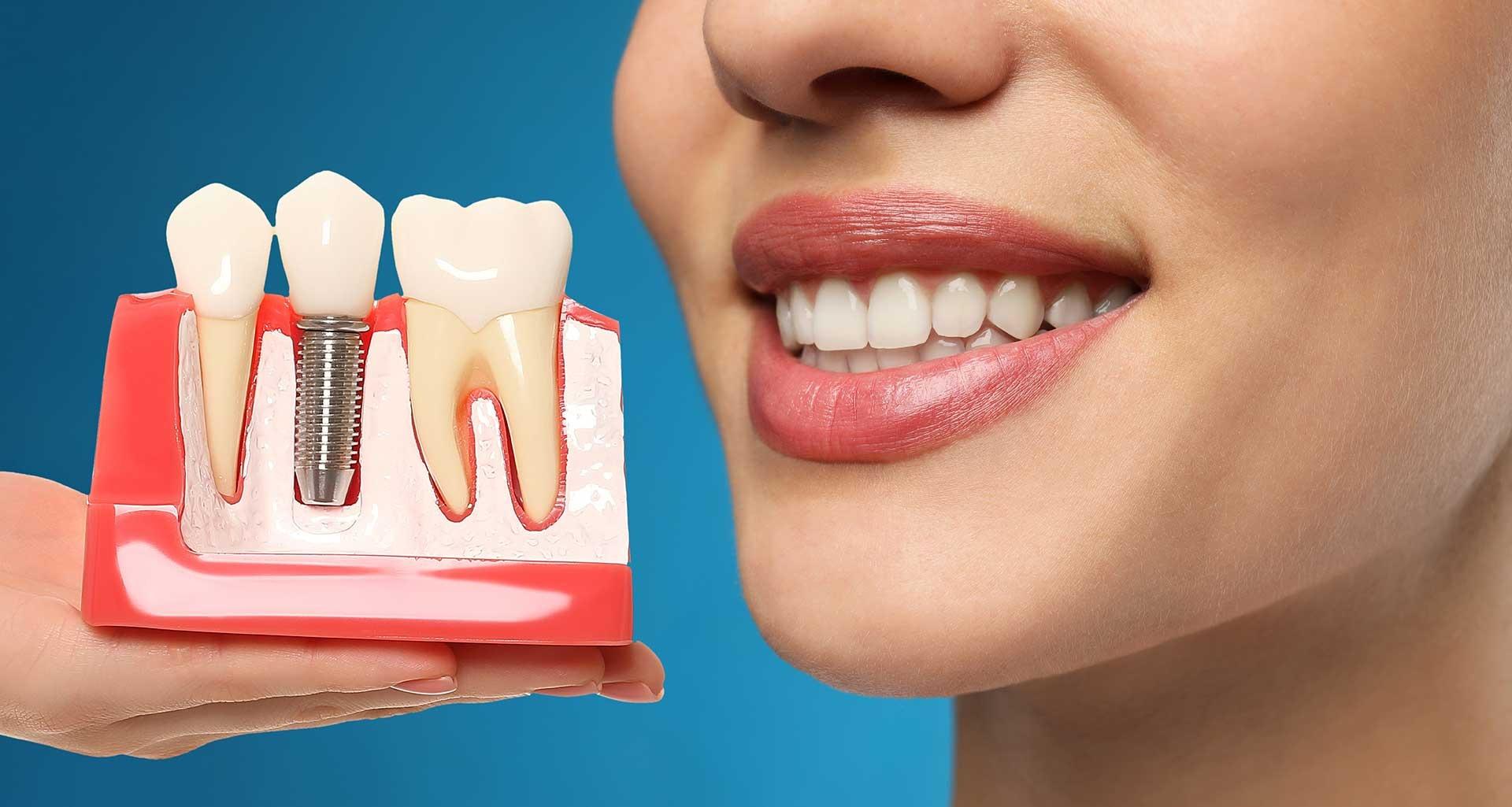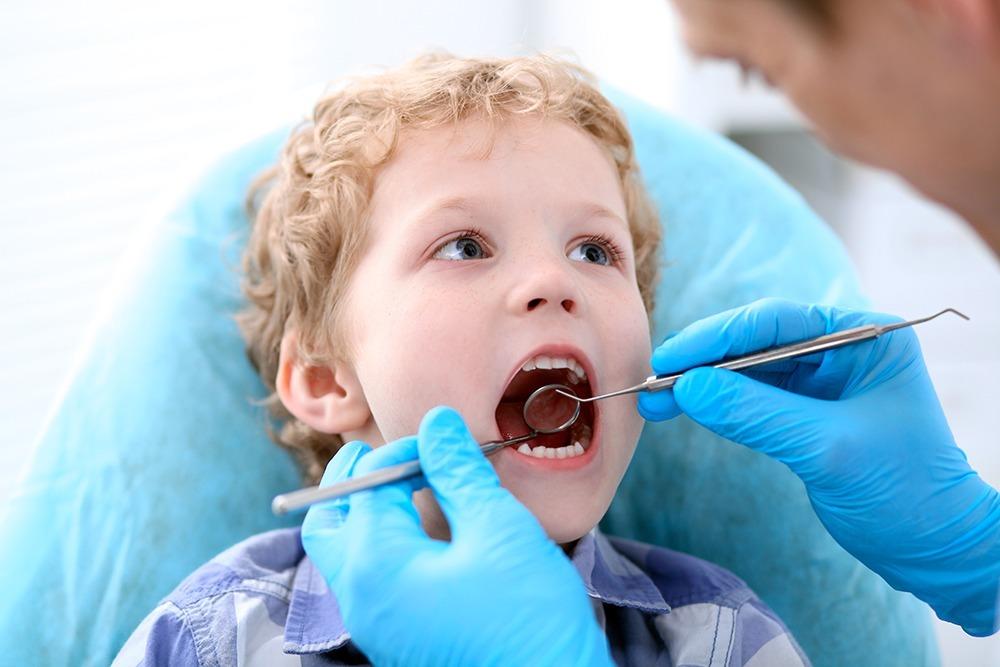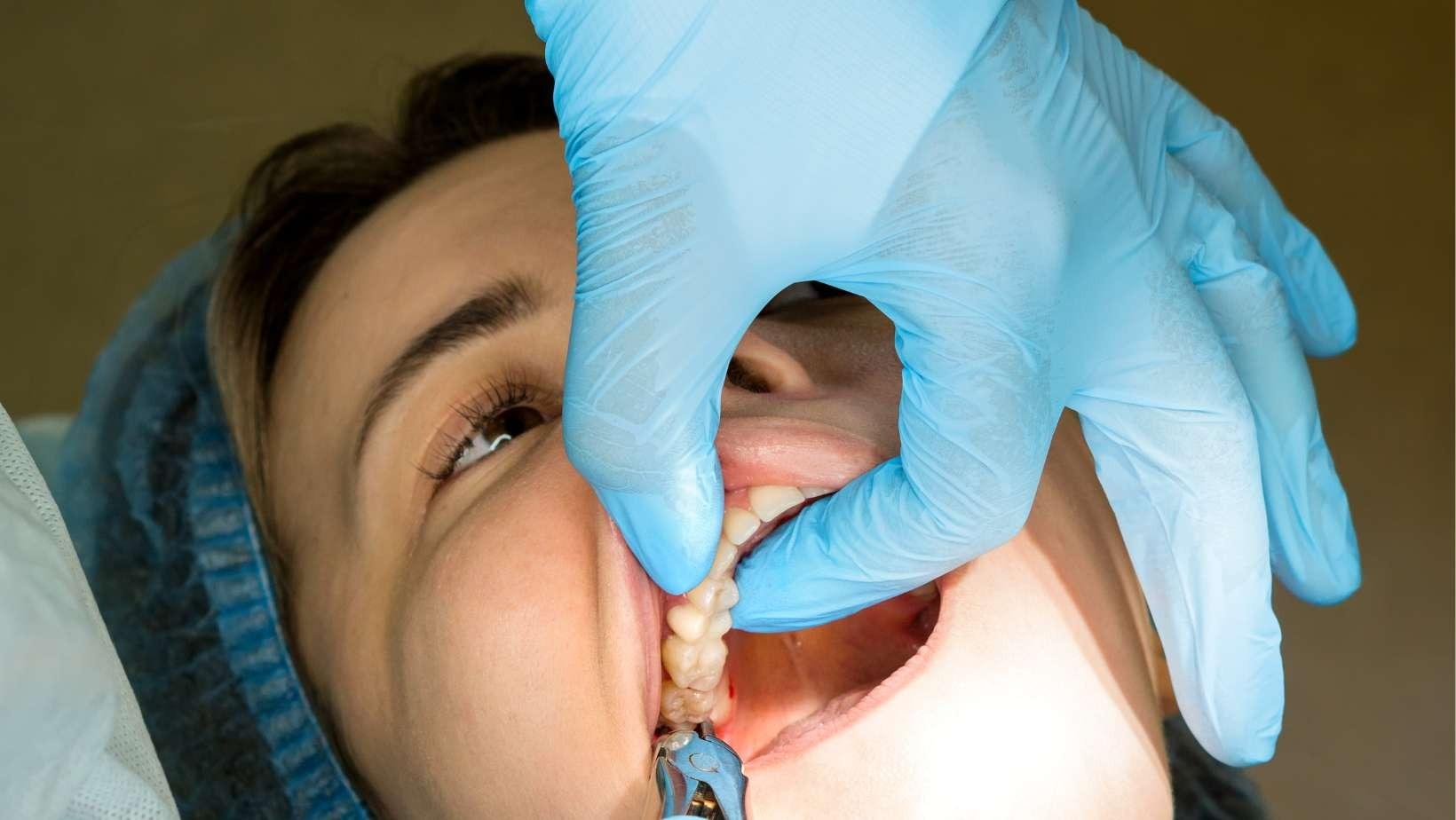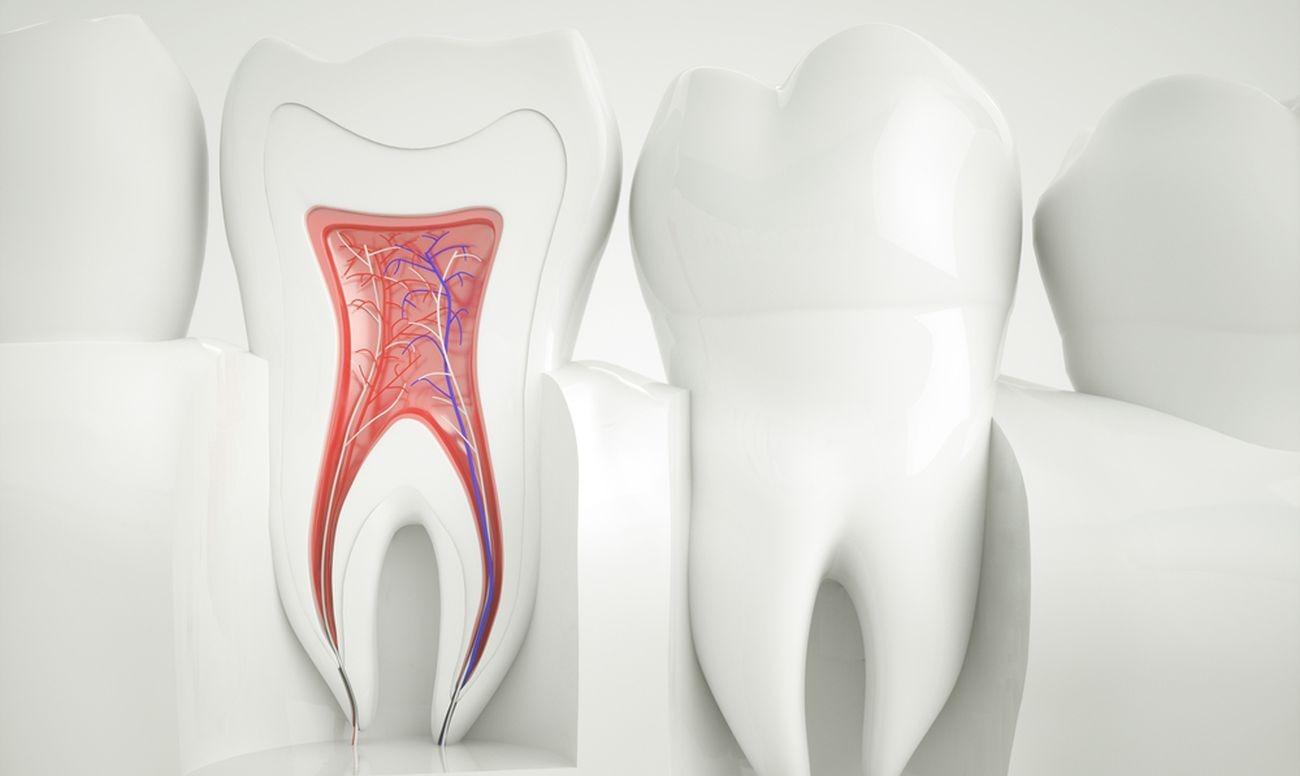Oral care should start earlier than most parents think even before your baby’s first tooth appears. Establishing good dental habits from the very beginning lays the foundation for a lifetime of healthy smiles.
Baby teeth, though temporary, play a crucial role in your child’s development. They help with chewing, speech, and guiding permanent teeth into their correct positions. Neglecting them can lead to early decay, pain, and even problems with future tooth alignment. In this article, we’ll share practical, dentist-approved tips to help parents protect their baby’s oral health from day one ensuring those first tiny teeth grow strong, healthy, and cavity-free.
When Does Baby Oral Care Begin?
Baby oral care begins long before the first tooth appears. Even before teething starts, it’s important to keep your baby’s mouth clean. After each feeding, gently wipe your baby’s gums with a soft, clean cloth or gauze to remove milk residue and bacteria. This simple habit helps prevent buildup that could lead to early gum irritation or decay once teeth erupt.
Most babies begin teething between 6 and 12 months of age, though some may start earlier or later. As soon as the first tooth appears, you can switch to a soft-bristled baby toothbrush and use a tiny smear of fluoride toothpaste (about the size of a grain of rice).
Starting early helps your child get comfortable with daily oral care routines, making brushing a natural part of their life. Establishing these habits from infancy not only protects baby teeth but also sets the stage for lifelong dental health and hygiene awareness.
How to Clean Your Baby’s Mouth
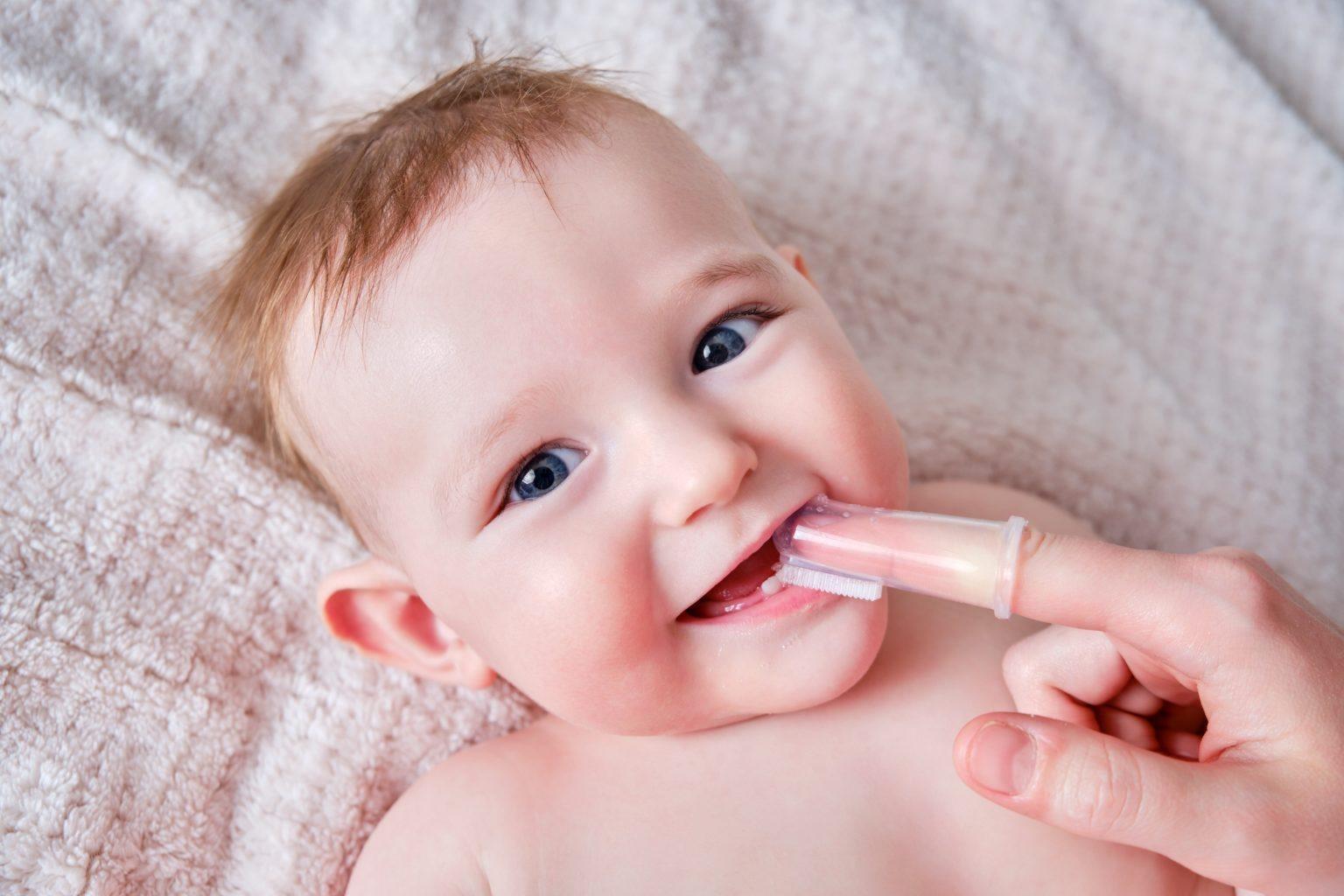
Keeping your baby’s mouth clean from the start is one of the best ways to prevent early dental problems. Here’s how to care for your baby’s oral health at each stage of development:
Before Teeth Erupt
Even before your baby’s first tooth appears, it’s important to keep their gums clean. After each feeding, use a soft, damp cloth or clean gauze to gently wipe the gums. This removes milk residue and bacteria, helping your baby get used to oral care while maintaining a healthy mouth environment.
When Teeth Appear
Once the first tooth emerges, usually around 6 months of age, you can begin brushing. Use a small, soft-bristled baby toothbrush designed for infants. Apply a tiny smear of fluoride toothpaste about the size of a grain of rice for children under 3 years old.
Gently brush twice a day, ideally in the morning and before bedtime, to remove plaque and food particles. As your child grows, make brushing a fun and consistent part of their daily routine, setting the foundation for lifelong healthy habits.
Common Oral Health Issues in Babies
Even though baby teeth are temporary, they are still vulnerable to dental problems. Understanding common oral health issues early helps parents prevent complications and protect their little one’s smile.
Baby Bottle Tooth Decay
Also known as Early Childhood Caries, baby bottle tooth decay occurs when a baby’s teeth are frequently exposed to sugary liquids such as milk, formula, or juice especially when bottles are used at bedtime. The sugars feed bacteria in the mouth, leading to acid attacks that damage tooth enamel.
Prevention tip: Avoid letting your baby fall asleep with a bottle, and offer plain water instead between feedings. Start cleaning the mouth early to remove residue and reduce bacteria buildup.
Teething Discomfort
Teething can cause gum soreness, irritability, and drooling as new teeth begin to break through.
Safe soothing options include gently rubbing your baby’s gums with a clean finger, offering a chilled (not frozen) teething ring, or using a cool, damp washcloth for comfort. Avoid teething gels or products with numbing agents unless specifically advised by your dentist or pediatrician.
Thumb Sucking or Pacifier Use
Thumb sucking and pacifier use are natural self-soothing behaviors for infants and toddlers. However, prolonged or intense sucking beyond age 3–4 can affect the alignment of teeth and the shape of the jaw, potentially leading to bite problems.
Tip: Gradually encourage your child to stop the habit as they grow older, offering comfort, praise, and gentle reminders rather than punishment.
Healthy Habits for Parents to Encourage
Building strong oral health starts with small, consistent habits that parents can guide from the very beginning. Here are some essential routines to help keep your baby’s teeth and gums healthy:
Avoid Putting Babies to Bed with Bottles (Except Water)
Letting a baby sleep with a bottle of milk, formula, or juice can lead to baby bottle tooth decay, as sugars linger on the teeth overnight. If your baby needs comfort at bedtime, use a bottle with plain water only or soothe them in other gentle ways like rocking or cuddling.
Limit Sugary Drinks and Snacks
Sugary foods and drinks even fruit juices can contribute to tooth decay. Offer nutrient-rich snacks like soft fruits, yogurt, and cheese instead. For hydration, plain water and milk are the best options for developing teeth.
Encourage Drinking from a Cup by 12 Months
Transitioning from a bottle to a sippy cup or open cup around the first birthday helps prevent prolonged exposure to sugars and supports proper oral muscle development. This milestone also promotes independence in your child’s feeding routine.
Clean Pacifiers Properly Never “Clean” with Your Mouth
Parents sometimes put a dropped pacifier in their own mouth to “clean” it, but this can transfer cavity-causing bacteria to the baby. Always rinse pacifiers with clean water or sterilize them as recommended.
First Dental Visit: When and Why
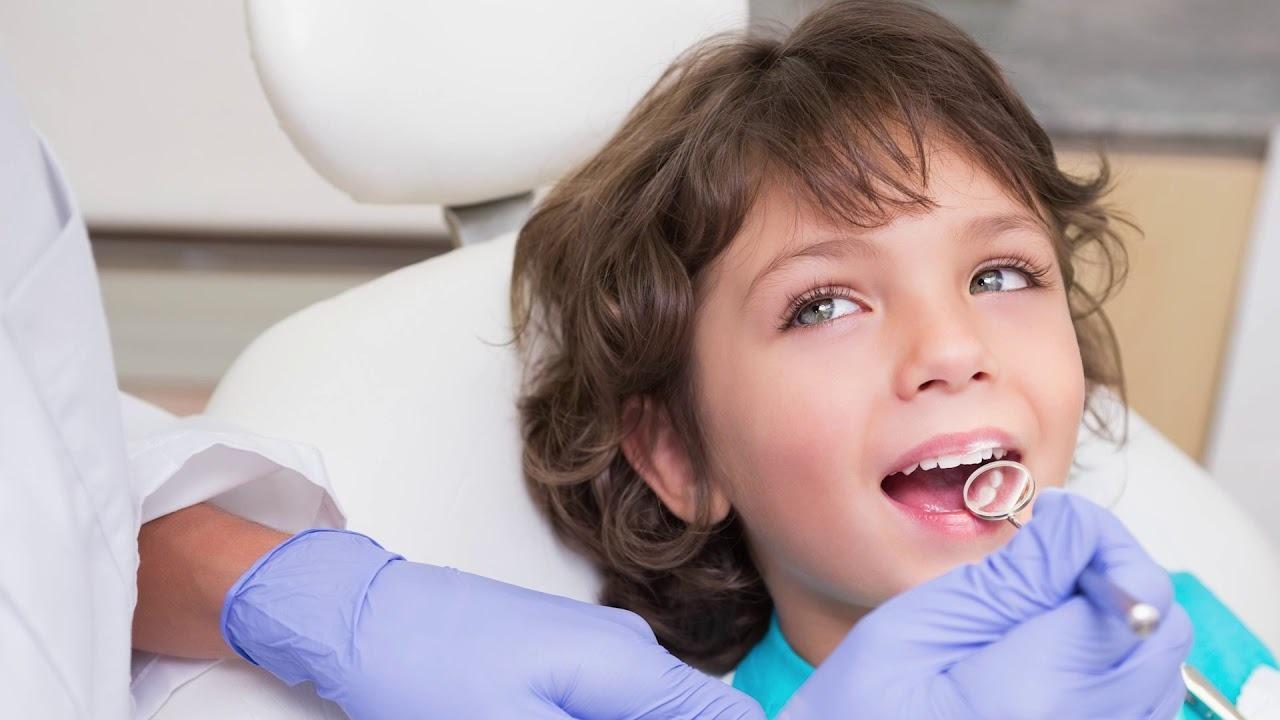
Your baby’s first dental visit is a key milestone in their oral health journey and it should happen by their first birthday or within six months of the first tooth erupting, whichever comes first. Early visits set the foundation for a lifetime of healthy smiles.
What Happens During the First Visit
A baby’s first dental appointment is simple, gentle, and focused on comfort for both child and parent. The dentist will:
- Examine your baby’s mouth to check for early signs of decay, gum health, and proper tooth development.
- Review feeding and oral care habits to identify any potential risks, like nighttime bottles or thumb sucking.
- Demonstrate proper cleaning techniques for your baby’s teeth and gums.
- Answer your questions about teething, fluoride use, and pacifiers.
- The visit is usually short and stress-free often done with your baby sitting on your lap to help them feel safe.
Why Early Dental Visits Matter
Early checkups play a vital role in preventing future dental issues. By visiting the dentist early:
- Small problems can be detected before they turn into cavities.
- Parents receive personalized advice on nutrition, oral hygiene, and teething care.
- Babies get used to the dental environment, reducing fear in future visits.
- Regular dental visits from an early age teach children that oral care is a normal part of life setting them up for a lifetime of confident, healthy smiles.
Tips for Teething Comfort
Teething can be a challenging phase for both babies and parents, but with the right care, you can help soothe your little one’s discomfort safely and effectively.
Safe Ways to Relieve Teething Pain
Chilled (not frozen) teething rings The cool temperature helps numb sore gums and reduce inflammation. Avoid freezing, as extremely cold surfaces can damage delicate gum tissue.
Clean fingers for gentle gum massage
Wash your hands thoroughly, then gently rub your baby’s gums with a clean finger to ease pressure and pain.
Cold, soft washcloth
A clean, damp cloth chilled in the refrigerator can be a great, safe teether for babies to chew on.
What to Avoid
Do not use teething gels or numbing creams unless specifically recommended by your dentist many contain ingredients that can be harmful to babies. Avoid hard or frozen toys that can bruise or injure gums. Skip amber teething necklaces, which pose choking and strangulation risks.
When to Call the Dentist or Pediatrician
Mild fussiness, drooling, and a slight rise in temperature are common during teething. However, if your baby develops a high fever, rash, or unusual irritability, consult a dentist or pediatrician immediately these may indicate an infection or another health concern.
With patience, comfort, and the right teething care, you can help your baby get through this milestone safely while keeping their gums and new teeth healthy.
Role of Parents in Building Lifelong Oral Habits
Parents play the most important role in shaping their child’s attitude toward oral health. The habits children learn early often stay with them for life and that begins with guidance, consistency, and positivity from home.
Be a Role Model for Good Habits
Children naturally imitate what they see. When parents brush and floss regularly, kids learn that oral care is a normal and important part of daily life. Make brushing a family activity stand together at the sink and show them how it’s done with gentle, circular motions.
Make Dental Care Fun and Positive
Turn brushing and flossing into enjoyable routines rather than chores. You can: Play a short song or use a timer to make brushing for two minutes fun.
Conclusion
Healthy smiles start early even before the first tooth appears. Establishing good oral care habits from infancy lays the foundation for a lifetime of strong teeth, healthy gums, and confident smiles. By cleaning your baby’s mouth regularly, encouraging healthy feeding practices, and scheduling early dental visits, you’re setting your child up for lifelong oral wellness.
Remember, you don’t have to do it alone your pediatric or family dentist is your partner in every stage of your child’s dental development. From teething tips to preventive care, regular checkups help ensure your little one’s smile stays bright and healthy.
- Let your child pick a toothbrush in their favorite color or with a cartoon character.
- Offer praise or use a reward chart for consistent brushing.
- By making oral care enjoyable, you build confidence and remove fear from the process.
Schedule Regular Family Dental Visits
Children who see their parents going to the dentist are more likely to view it as a normal, non-scary experience. Schedule regular family checkups together to encourage consistency and teach the importance of preventive care.
When parents actively participate in their child’s oral care teaching, demonstrating, and celebrating small milestones they help build strong, lifelong dental habits that lead to healthy, happy smiles well into adulthood.

